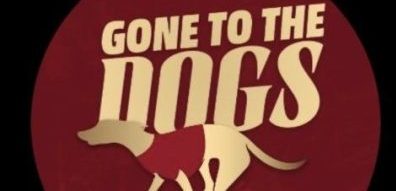This week’s announcement that Towcester has gone into administration has been met with a smorgasbord of opinions.
The most common theme was ‘That’s it. The game’s f***ed’.
There was a decent helping of ‘I told you sos’.
Many people took a view, as best summed up with this, perhaps hypercritical, readers’ letter, that the place was badly run. In fact, even some of Towcester’s greatest supporters were critical of perceived over-staffing everywhere from the racing office to the carpark attendants.
Should they have charged admission for their evening meetings? How much did it cost to have five riot vans at the Derby final?
Among the racecourse promoters, few tears were shed. Probably eight tracks will gain from Towcester’s loss in terms of trainers. Some will undoubtedly gain extra paid meetings from ARC.
There was also a feeling of ‘who were those gobshites telling us they were the future of greyhound racing?’
Outside the industry, the ‘antis’ rejoiced in what they perceived as further evidence of the decline of greyhound racing.
More moderate welfarists mourned the loss of one of the most welfare conscious tracks in the business.
The Racing Post’s David Ashforth, with whom I was invited to speak on BBC Radio Northampton on Thursday, reeled out a charge sheet of Towcester’s losses.
With a byline describing the track ‘that always ploughed its own furrow’, Ashforth described Lord Hesketh’s ‘idiosyncratic control’.
He reeled off many of the debt issues including a balance sheet deficit in 2016 of £5.2m plus other loans and share restructuring manoeuvres.
I share most of the views above, but I believe there is much more to the story.
It’s true that since arriving on the scene, Towcester have made a million mistakes. From day one, taking the wrong advice from the wrong ‘experts’ cost them a small fortune.
It is true that they made some ‘OTT’ decisions, but many of those were made with the owners and trainers in mind. They set out to do more for the owners and trainers – and they delivered.
They wanted to bring some style and class to an industry that had forgotten what it meant, and in many many ways, they succeeded.
As for being a financially disastrous model, I wonder . . .
I can’t say that I agree with their principle of free admission for all, be that for horse or dog racing.
Yes, they could have reduced their racing office, and other staff numbers. I think they could have shaved 20% off prize money and trainer bonuses and still had more than enough runners.
(Let’s not forget, most of the disenchanted trainers who have left in recent months, did so because they couldn’t get enough races for their dogs, not for financial reasons)
I believe that the single greatest reason that Towcester failed, was because the odds were stacked against them; though they have to accept some of the blame.
Lord Hesketh once told me that he doesn’t like to be considered as a ‘maverick’, though I think his actions suggest that he is one and that might have cost his track dearly.
When SIS first came knocking they enjoyed a very short relationship. My perception was the media provider made demands of the piper who were determined to play their own tune.
That proved a very costly mistake.
Out in the cold with no contract, Towcester only had one side to join when the media rights war broke out. They joined ARC, but from a weak position.
How weak? Well here is the killer.
My understanding is that Towcester’s total weekly income from their media rights contract who have netted them around £24K per week for four meetings.
Working with SIS, and given extra morning/afternoon meetings, which would have suited them and their heavy kennel strength, they would have trebled that – and some. (An afternoon meeting alone is reckoned to be worth in the region of £14K)
I understand that Towcester were one of several tracks who explored a ‘kiss and make up’ (or work together and tolerate) option with SIS but were bound by their ARC contract.
Hesketh’s aim. I believe, was to get through to the end of his ARC contract in December 2019, and then determine their own future.
Hesketh shared my view, that in the long term, the track should control its own media rights, independent of the betting industry, and make us of modern technology.
The industry is not quite in that position yet, and a 2020 Towcester short/medium term contract would have been a hybrid, possibly a couple of ARC/SIS meetings per week, with Saturdays free to, as Ashforth described, ‘plough their own furrow.
Sadly, the patience of the board, and the money, ran out too soon to fulfil that entirely deliverable goal. In fact, Towcester are the only track who even had that objective in their long term plans.
Put simply – if Towcester had Harlow or Doncaster’s SIS contract, I believe they would still be trading.
So what does the future hold?
The place will be sold with ARC admitting their interest. In addition to their greyhound contracts, they have a long established business relationship with the horseracing product via The Racing Partnership.
So far, there is no word from SIS. They might see Towcester as a significant trophy in their battle with ARC, as they try to persuade the betting industry that they have the more attractive greyhound product.
The track, kennels, equipment, reputation and a Derby sponsor remain intact. If ARC do buy the place, would they consider running Towcester – already stripped of its kennel strength – as an open race venue?
Could they be arsed?
Wherever this goes from here, I retain the absolute respect for what the Hesketh family and CEO Kevin Ackerman strived to achieve.
Anybody who attended a Greyhound Derby Final must surely acknowledge that they restored the faith of the greyhound public.
We have a magnificent product, which, if delivered with style and enthusiasm, reminds us why we love this game. You might argue that neither they, nor the greyhound industry, was able to deliver, their vision of the future.
Towcester brought much more good than bad to this failing industry and I salute their attempt.













